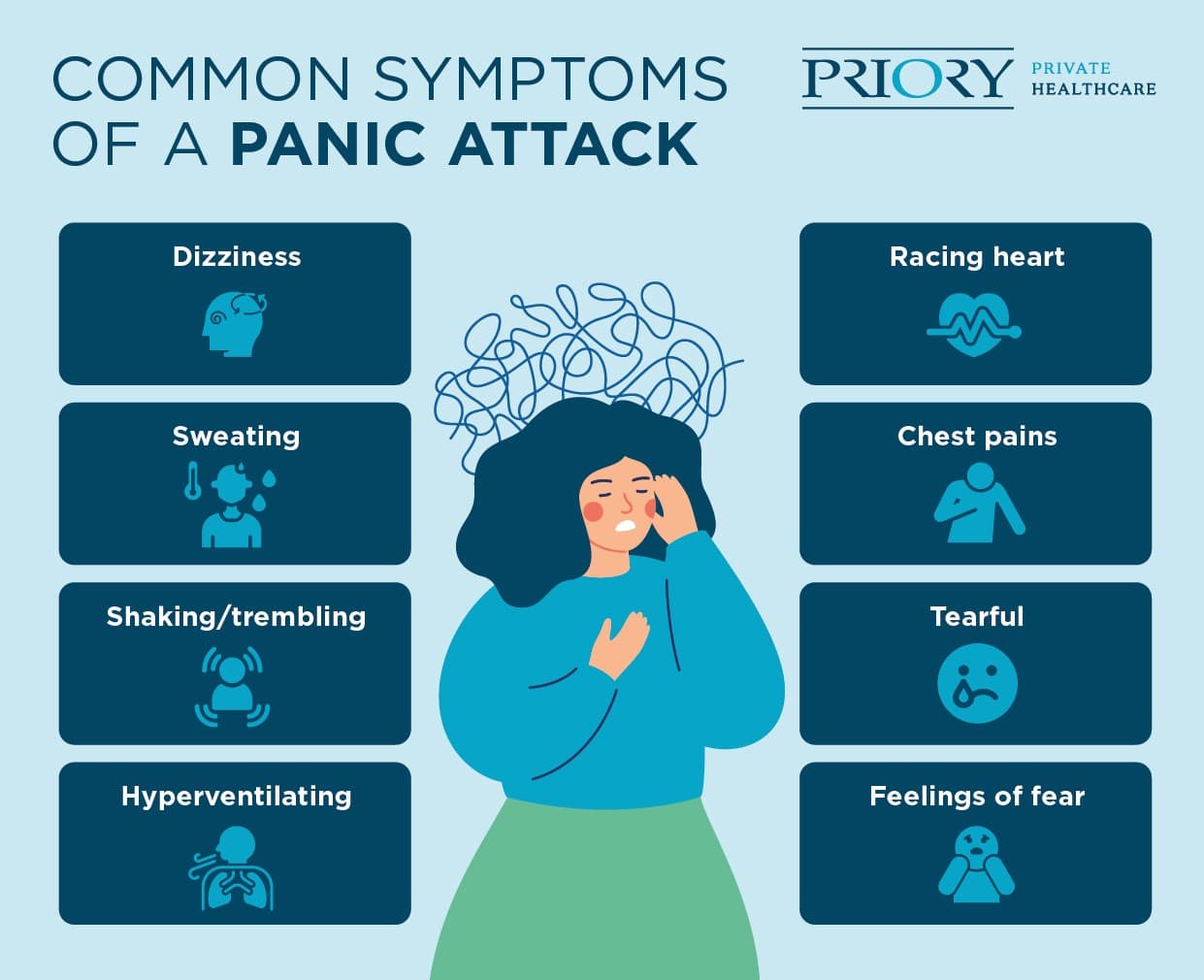What to do when you feel a panic attack coming on
Here, we provide recommendations on what to do when you feel a panic attack coming on.
Here, we provide recommendations on what to do when you feel a panic attack coming on.



A panic attack is a sudden feeling of intense anxiety that happens without warning. It's often accompanied by powerful physical symptoms and can be so frightening that people can believe they're having a heart attack, collapsing or even dying.
It's important to know what to do in the moment when a panic attack arises and recognise that there's help available to support in the longer term.
Sometimes, unexpected panic attacks can happen, but more often than not, something will trigger a panic attack and you'll be able to feel your panic attack coming on.
When you feel the signs of a panic attack coming on, it's important to know what you should do in the moment. If you feel the signs of a panic attack coming on, you can:
Unfortunately, there's no way to stop a panic attack. When you feel the signs of a panic attack coming on, try and focus on your breathing as a way to control your panic attack symptoms.
Some panic attacks symptoms you might experience include dizziness, shaking or trembling, and hyperventilating.

Safely stop what you're doing so you can focus on what you're thinking.
Tell yourself that your mind and body are just choosing to react intensely to your thoughts when they don’t need to. It isn’t a heart attack and you’re not going to collapse or die.
Your breathing may quicken during a panic attack. The hyperventilation you experience can cause you to become even more frightened as you worry about not being able to breathe. Focus on breathing slowly, deeply and as gently as possible.
Breathe in through the nose for 3 seconds, hold the breath for 2 seconds and breathe out through the mouth for 3 seconds. As you keep repeating this technique, you should start to feel a little calmer. If not, there are other simple breathing techniques you can try.
You may want to close your eyes to help you focus. By doing this, you can calm your breathing, reduce your physical panic attack symptoms, and stop the panic cycle.
Statements like “panic is just a high level of anxiety” and “my panic will pass naturally, given time, and won’t last forever” can help you recognise that this is just a moment - you aren’t controlled by panic attacks and this will eventually go away.
Panic attacks can leave you feeling detached from reality. Focus on your surroundings – what can you hear, taste, see, smell and touch? Doing something like placing your feet on the floor or feeling the texture of your t-shirt can help to re-focus you away from your racing thoughts.
You could also try and focus on something in the room such as a picture, clock or a plant, and think carefully about the shape, pattern, colour and size of it. You may even want to go to an imaginary place that makes you feel relaxed. Once there, focus all your energy on what you can hear, taste, see, smell and touch. Doing these exercises can help to re-focus you and distract you from the panic and its symptoms.
If you’re with someone who’s having a panic attack, here are some things that you can do to help them:
We understand that panic attacks are incredibly distressing, but it's important to understand that panic attacks can be managed and there's treatment that can help to reduce or resolve them.
Through therapy at Priory, a person can tackle the underlying causes of their panic attacks, identify triggers and learn effective strategies they can use to minimise panic attacks and manage them if and when they occur.
Get free monthly tips, tools and expert videos to support your mental health.
That's all in The Reset, helping you support your wellbeing - directly to your inbox each month.
